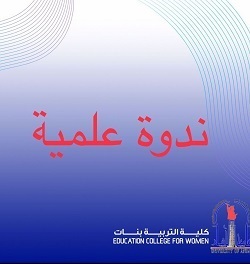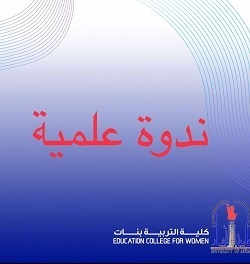
Academic Article by Title The Results of The Social And Moral Crusades on The Levant

Academic Article by Title The Results of The Social And Moral Crusades on The Levant
Mr. Dr. Iftikhar Abdul Hakim Rajab Al-Akedi
College of Education for Girls - Department of History
The results of the social and moral Crusades on the Levant:
As soon as the crusader invaders settled in the Levant, the effects of that invasion appeared to Muslims in the Levant countries in particular and the Islamic East in general .
As the events of the Crusades had negative effects from the social point of view, i.e. from the point of view of daily life in the Levant, and these negative effects were manifested on several levels. On social life in the Levant Among the most prominent negative.
consequences of these wars on the social level was the tension in the relationship between Muslims and Christians of the East, despite the fact that the Crusaders treated the Orthodox poorly, as they took over their churches and turned them into Latin churches. They also prevented the Copts from visiting Jerusalem on the grounds that they were heretics. The Armenian and Syriac Christians in the Levant from providing assistance to the Crusaders, as happened, for example, in the Crusaders’ takeover of Antioch in 492 AH.
The Crusades led to conflicts and disputes between Muslims and Crusaders, between urban princes and their counterparts in rural and mountainous areas, among the sons of the ruling families and their greedy ministers, and among the general population, most of whom were Arabs, and between Turks and Kurds. The emergence of banditry and bandits in the outskirts of Baalbek, Nablus, and Shiraz. On the other hand, these wars led to the imbalance of social forces in some areas, as Muslims turned into minorities in the cities occupied by the Crusaders as a result of the Crusader massacres and the massive migrations that resulted from them, and some Muslims chose to convert From their religion, they converted to Christianity, fearing for their lives. It was natural for the members of the Islamic minorities in the areas that were subject to the Crusaders to cling to their civilized identity and affirm their belonging to the Arab Islamic civilization, as the inhabitants of the rural areas adjacent to Acre deliberately concealed the Muslim prisoners from the eyes of the Crusaders and helped them reach the Islamic areas.
Life in the rural areas under the control of the Crusaders centered around small mosques, and the jurists and judges continued to carry out their religious and non-religious services to the people of these villages because it was not possible to dispense with them in matters of marriage, inheritance, and others.
At a time when the prosperous urban centers were destroyed as a result of the Crusades, life flourished in areas that were far from the traditional lines of war. Whenever the area was a war zone, the population and social deterioration was clear and vice versa.
Some areas witnessed some peaceful coexistence due to economic necessities, as happened in Banias when the people of Damascus and the Crusaders divided the agricultural areas, just as the economic necessity allowed
maintaining the security of the trade routes and their caravans in Acre. As for the impact of the Crusades on the moral and ethical system in the Arab world,
we can observe it through the fact that those long wars had more negative secretions
than those of ordinary wars. The Arab and Islamic communities have suffered from
many manifestations of social deterioration at the level of the value and moral system,
including the spread of moral corruption among the classes of society.
Sources :
1-Abu Ya’la Hamza bin Asad al-Qalani, appendix to the history of-Damascus (Jesuit Fathers
Press, Beirut - 1908) pp. 135-136
- 2-Abu Muzaffar Osama bin Murshid bin Munqith Al-Shirazi, Kitab Al-Ta’bar, edited by Philip
Hitti , (Dar Al-Kutub Al-Ilmiyya, Beirut-lat) pp. 153-154.
3-Abu Al-Hasan Muhammad bin Ahmed bin Jubayr Al-Kinani, The Journey of Ibn Jubayr,
(Beirut - 1964), p. 276.
- 4- Abu Al-Abbas Taqi Al-Din Ahmed bin Ali bin Abdul Qadir bin Muhammad Al-Maqrizi,
“Al-Suluk to Know the Kings”, investigation, Mustafa Ziada, 2nd Edition, (Composition
and Translation Committee Press, Cairo - 1956), 2/ 640-641
- 5-Qassem Abdu Qassem, What are the Crusades, The World of Knowledge series for
the year 1990, issue, 149, pp. 206-210-211
- 6-Muhammad Kurd Ali, Islam and Arab Civilization, (Cairo - 1950) 1/303-304.
7-Khasha’ Al-Maadidi and others, The Arab Homeland and the Crusader Invasion (Dar Al-Kutub, Mosul - 1981), p. 265
- 8-Tawfiq Al-Taweel, In Our Arab-Islamic Heritage, (Kuwait - 1985), p. 179




